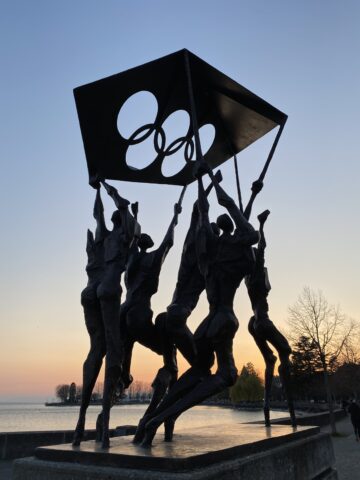Sporting successors in football and res judicata of disciplinary proceedings before association bodies
4A_476/2020, Judgment of 5 January 2021 A. v. FIFA, B. FC, appeal against the CAS Award CAS/2019/A/6436
Even though the SFT judgment itself does not answer any significant questions, this procedurally complex case arose out of the highly debated issue of “sporting successors” in football: An Australian football Player played several years for a Greek football Club before both parties agreed to terminate the contract in 2012. Following outstanding payments from the Club, the Player filed a claim before the FIFA Dispute Resolution Chamber (DRC), which partially upheld his claim. Shortly afterwards, the FIFA Player Status Committee requested the Club to comply with the decision, failing which the matter would be referred to the FIFA Disciplinary Committee (DC).
However, the Hellenic Football Federation (HFF) informed FIFA that the Club had been dissolved and no longer existed. Therefore, the FIFA Disciplinary Committee concluded that it had no jurisdiction over a club that was no longer affiliated to FIFA. In 2016, the Player wrote back to FIFA and informed them that the Club was again affiliated with the HFF and had been participating in the Greek Super League since 2015. It requested anew the assistance of the FIFA DC in order to enforce the DRC’s decision under the relevant provisions of the FIFA Disciplinary Code to the extent that the Club was the “successor” of the previous club and therefore subject to disciplinary sanctions by FIFA.

Following FIFA’s response that it needed additional evidence, the Player informed FIFA that it had already submitted sufficient evidence and that its answer constituted a denial of justice, which allowed him to bring his case to the CAS. However, shortly afterward FIFA dealt with the case and issued a decision, considering that there was already a decision by the FIFA DC on this issue, and it could not re-open the case. In the meantime, the Player had withdrawn his appeal to the CAS but subsequently filed a new appeal to the CAS, whereby he unsuccessfully claimed a denial of justice by the FIFA DC for not reopening the disciplinary proceedings against the Club.
In his motion to set aside the CAS award, the Player requested the SFT refer the case back to the CAS for a new decision. He alleged a violation of public policy and more specifically the violation of the principle of res judicata. The SFT found the Player’s criticisms to be unsubstantiated and thus avoided dealing with the question of whether res judicata is applicable to disciplinary proceedings before association bodies, repeating that decision making bodies within associations are not arbitral tribunals and therefore their decisions do not constitute judicial acts. In view of the overall approach of the SFT though, the question should be rather answered negatively.
The SFT left the question open whether res judicata is applicable to disciplinary proceedings before association bodies, to the extent that these bodies are not arbitral tribunals and their decisions are not judicial acts
Regarding the allegation of violation of Article 6 (1) of the European Convention of Human Rights (ECHR), the SFT reiterated its view that it is not possible to directly raise a violation of the ECHR, even though its principles can be used to define the guarantees protected under Art. 190 (2) LDIP. For this, the appellant would need to show in what way or ways the alleged violation of the ECHR violates public policy. It also drew the distinction between this case – which relates to “voluntary” arbitration – and “forced” arbitration cases such as the Mutu and Pechstein judgment of the European Court. More specifically, the contractual provision in the termination agreement expressly allowed the Player to seek recourse to the public courts in the event of a dispute. The SFT concluded that the alleged infringement of the principle of a fair hearing was unfounded and dismissed the appeal in its entirety.
Note: the full Judgment is available in French at the website of the Swiss Federal Tribunal www.bger.ch. The English translations of important international arbitration decisions rendered by the Swiss Federal Tribunal (from French, German and Italian) are available on the website www.swissarbitrationdecisions.com , operated jointly by Dr. Despina Mavromati and Dr. Charles Poncet as a service to the international arbitration community.





